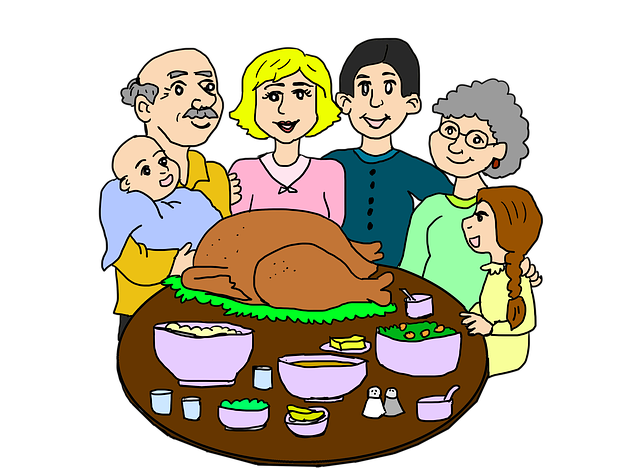Uno de los acuerdos de Miguel Ruiz en sus principios de vida, es ser impecable con las palabras. Todos conocemos, dentro del idioma, aquellas expresiones llamadas malsonantes, groserías o malas palabras. Estas no tienen en sí nada de perverso ni de ofensivo son simplemente palabras, que podríamos catalogar de inocentes, muchas de ellas tienen significado diferente, en distintos lugares geográficos, y es la interpretación que hacemos de ellas y la intención del hablante, lo que realmente incomoda.

Tenemos un tino para elegir esa palabra, que aún siendo incómoda para los oídos de la gente, pueda pasar desapercibida, bien sea, porque forme parte de un arranque emotivo, por dolor o susto, donde esta queda perfectamente ubicada, y se vuelve entonces necesaria, de eso la mayoría estamos conscientes.
Nos manejamos en círculos familiares o amistosos donde nuestra voz adquiere matices, tonos, y agarran peso semántico la cantidad de expresiones que utilizamos, estas se adaptan al contexto, y a lo que se esté desarrollando allí. No hay incomodidad, no hay enojo, puede ser motivo de risas inclusive y el momento se vuelve agradable, repito, para las personas, que forman parte de ese círculo, fuera de él, cuando no se tiene la confianza, las palabras pueden adquirir una tonalidad vaga, desajustarse, no encajar, y llegar a crear incomodidad en el otro.
No se trata de ser modoso, demasiado impresionable o tiquismiquis, sino de tener competencia comunicativa, afectiva, emocional, lógica y asertiva. Si yo sé que a una persona le incomoda algún tipo de expresión, evito manejarme en esos términos con ella.
Hay casos de relaciones, donde existe una especie de susceptibilidad en el trato, pero esto no es muy común realmente, en general, lo que abunda en una buena tertulia es la confianza y la calidad de lo que allí se hable, el interés que despierte la participación que todos tengan, donde se sientan cómodos .
Ahora bien, en la vida diaria, ejercemos roles de diferente naturaleza, en los que nos vemos obligados a tratar con otras personas y donde, necesariamente, tenemos que adecuar nuestro registro verbal a la situación, el momento y el contenido que se esté tratando allí.
Hay expresiones soeces, que se han vuelto muletillas, y mucha gente las usa, y las dice, a veces hasta como una especie de sobrenombre, las repite incansablemente, dicen, y así lo creo, que esto demuestra una pobreza de vocabulario.
La persona no se percata ni le importa el sentido de las palabras y no es que esté faltando el respeto a propósito, simplemente, es su manera de manejarse en sociedad, bien sea porque ha tenido poco roce con diferentes personas, lo que hace su círculo social limitado; porque se nutra de muchas canciones o videos, donde esa habla popular es más relajada y flexible; o por un estilo personal desenfadado, que quiere dar a demostrar de sí mismo.
Está también ese trato personal, que se dan entre hermanos, padres e hijos y en la pareja, que requiere, por el tipo de relación, de respeto y consideración, pero no siempre es así, hay núcleos familiares, donde se tratan de forma descortés permanentemente, y eso puede deberse a que así se han acostumbrado, no se incomodan por ello
En otros contextos, se maneja la palabra como el núcleo central de lo que quiere decirse y va cargada de una afectividad, que cuando se rompe, deja fisuras o grietas muy marcadas, que pueden hacer daño.
Con la pareja, por ejemplo, se crea un equilibrio, en un espacio muy íntimo, donde la palabra adquiere otra sonoridad y romper eso genera profundas diferencias a veces irreconciliables. Pueden no ser soeces pero su contenido bien definido, hace más daño: términos como: estúpido, tacaño, mediocre, mentiroso, hipócrita y otras.
De tanto dejar pasar lo que podemos sintetizar como malos tratos, llega un momento en que el respeto se pierde y al hacer un balance real de la relación, se observa, claramente, que ya queda muy poco, punto importante para reorientar las acciones.
Tú opinión es importante para mí.
Gracias por tu amable lectura
Solo contenido original
Imágenes de Pixabay con su respectiva fuente.
He utilizado el traductor de Google.

One of Miguel Ruiz's principles of life is to be impeccable with words. We're all familiar with the expressions we use in the language called swear words, rude words, or bad words. These aren't inherently perverse or offensive; they're simply words that we could classify as innocent. Many of them have different meanings in different geographical locations, and it's our interpretation of them and the speaker's intention that truly bothers us.

We have a knack for choosing that word, which, even though it may be uncomfortable for people's ears, can go unnoticed, either because it's part of an emotional outburst, due to pain or fear, where it fits perfectly, and then becomes necessary. Most of us are aware of this.
We operate in familiar or friendly circles where our voice takes on nuances, tones, and the number of expressions we use gains semantic weight. These adapt to the context and to what is happening there. There's no awkwardness, no anger, it can even be a source of laughter, and the moment becomes enjoyable, I repeat, for the people who are part of that circle. Outside of it, when there's no trust, words can take on a vague tone, become out of place, not fit, and even create discomfort in the other person.
It's not about being polite, overly impressionable, or picky, but rather about having communicative, affective, emotional, logical, and assertive competence. If I know that a person is uncomfortable with some type of expression, I avoid dealing with them in those terms.
There are cases in relationships where there's a kind of sensitivity in the conversation, but this isn't very common. In general, what abounds in a good gathering is trust and the quality of what's discussed, the interest that everyone's participation arouses, and where everyone feels comfortable.
Now, in daily life, we play roles of different kinds, in which we are forced to interact with other people and where we necessarily have to adapt our verbal register to the situation, the moment, and the content being discussed.
There are swear words that have become crutches, and many people use them and say them, sometimes even as a kind of nickname. They repeat them tirelessly, they say, and I believe this demonstrates a lack of vocabulary.
The person doesn't notice or care about the meaning of the words, and it's not that they're intentionally disrespectful; it's simply their way of handling themselves in society, either because they've had little contact with other people, which makes their social circle limited; because they're nourished by too many songs or videos, where popular speech is more relaxed and flexible; or because of a casual personal style they want to demonstrate.
There's also that personal treatment, which occurs between siblings, parents, children, and within couples, which requires, due to the type of relationship, respect and consideration. But this isn't always the case. There are families where people treat each other in a permanently rude manner, and this may be because they've become accustomed to it; they aren't bothered by it.
In other contexts, words are used as the central core of what they want to say and are charged with an affectivity that, when broken, leaves very marked fissures or cracks that can cause harm.
With a partner, for example, a balance is created in a very intimate space, where words take on a different tone, and breaking that creates deep, sometimes irreconcilable differences. They may not be vulgar, but their well-defined meaning is more damaging: terms like: stupid, stingy, mediocre, liar, hypocrite, and others.
By repeatedly letting what we can summarize as mistreatment slide, there comes a time when respect is lost, and when taking a real stock of the relationship, it becomes clear that very little of it remains, an important point for reorienting actions.
Your opinion is important to me.
Thank you for your kind reading
Original content only
Images from Pixabay with their respective source.
I used Google Translate.

